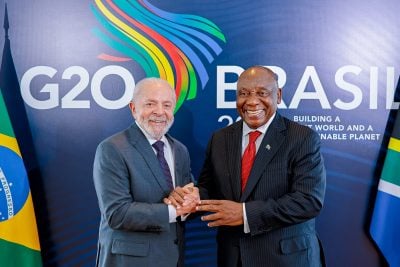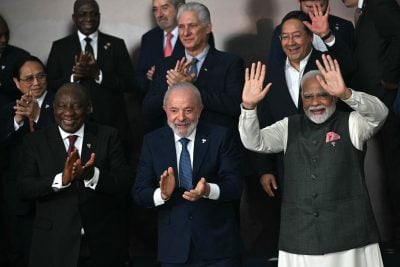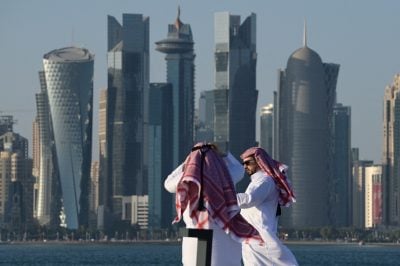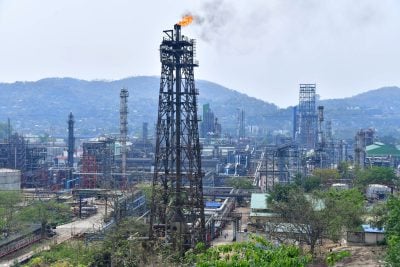The presidential elections in Nigeria, Africa’s most populous country and largest economy have ramifications that travel well beyond its borders.
While the results declared by the Independent National Electoral Commission are being contested by the two biggest opposition parties, congratulations from heads of state around the world have been offered to Bola Ahmed Tinubu, candidate of the incumbent All Progressive’s Congress and the transition process has effectively begun.
To assess the election, IC Intelligence convened a panel comprised of: Ryan Cummings, Director of Analysis at Signal Risk; Charlie Robertson, Global Chief Economist at Renaissance Capital; Dr Alex Vines, Head of the Africa Programme at Chatham House; and Lagun Akinloye, Global Operations and Governance Manager at HE Toyin Saraki Global Office and Philanthropy.
Here are some takeaways from the session, which was moderated by Dr Desné Masie, Chief Strategist at IC Intelligence.
The Independent National Electoral Commission (INEC) did a poor job of planning
Ahead of the election, Nigeria’s election management body, INEC, got more funds than it had ever done (estimates had quoted US$662m but Dr Vines said the Presidency in total probably spent $2bn on the elections).
The capital infusion to INEC in this election enabled it to roll out a novel electronic system that was meant to improve verification and overall efficiency of the process. On the day, however, INEC found itself grappling with basic logistical issues.
Dr Alex Vines reported that many polling units could not start the process at the advertised time of 8. am, owing to the unavailability of voting materials. This meant that many polling units had to stay open well beyond the official cut-off and counting happened well into the night, opening the door for intrigue and allegations of intrigue.
Despite these issues, Dr Vines said that the process was largely open, with counting and declaration conducted in full view of agents and voters. Many people complained about not being able to vote.
Challenges to the election have little chance of succeeding
The opposition parties contend that INEC announced votes without recourse to the election management software which could have been verified by all parties and that these results may not reflect what may have been declared at the polling units. The Popular Democratic Party and the Labour Party candidates say they are collecting evidence for a petition to the Supreme Court.
However, as Ryan Cummings pointed out, the provisions of the Nigerian constitution and the law setting up INEC set a very high bar for nullification. It is unlikely that the Supreme Court, which has rejected all previous petitions of this nature, would conclude that the irregularities were enough to fatally compromise the 1.8 million margin amassed by the declared winner.
Low turnout crushed Obi’s hopes
Peter Obi, candidate of the Labour party, looked set to upset the duopoly that has dominated Nigeria since the return to democracy in 1999.
With some projections, including by Stears, predicting him the winner in the case of a high turnout. He waged an exciting campaign that roused young and educated voters who are tired and disappointed by Nigeria’s perennial inability to live up to its potential.
Mr Obi and his campaign would have been further buoyed by the enthusiasm with which the registration process was embraced by voters. An unprecedented 87.2 million voters procured personal voter cards, according to Dr Vines, however, only 24.9 million people actually exercised their franchise in the 25th February elections.
The big question is with these elections generating so much excitement, why was the turnout so low? Insecurity may be a source, but disillusionment is probably more likely.
Ryan Cummings said this could be due to fears around security and challenges in procuring currency amid an exercise by the central bank. Charlie Robertson contended that had turnout reached 50 per cent, Mr Obi may have garnered the second highest number of votes – but would still not have won.
Baba Tinubu faces a daunting in-tray
Nigeria faces a daunting future, particularly on the economic side. The good days of the early 2000s are well behind us now, according to Robertson.
In the first two decades, Nigeria benefited from the IMF’s Heavily Indebted Poor Countries (HIPC) programme and debt relief, access to international capital markets, cheap interest rates and a China that was willing to lend (because of its high savings rates). The conditions today are very different, and almost the complete opposite.
On the campaign trail, Mr Tinubu promised to hit the ground running. That commitment will be put to a severe test by the economic and social issues that will confront him on day one. Nigeria’s security challenges are among many promises that his predecessor and party colleague, departing President Buhari failed to deliver on. Lagun Akinloye said the rising cost of living, high unemployment, poor social services and the overhang from two recessions since 2015 have combined to present a picture of hopelessness, especially among the youth.
Charlie Robertson said while wildly unpopular in the country, Nigeria’s best bet may be to approach the International Monetary Fund. However, a president with as low a majority as Tinubu is coming into office with, may not have the latitude to attempt such a move, especially as he has already committed to a (phased) withdrawal of fuel subsidies.
Dr Masie explained that Moody’s recent downgrade of Nigeria’s sovereign debt will further constrain borrowing on capital markets and that the debt situation would remain dire as much of the servicing is currently on interest payments. Should oil prices remain uneconomic, economic conditions will remain on the tough side despite the 3% GDP growth outlook.
Tough decisions can’t be held off much longer
Many observers expect Tinubu to have a more muscular approach to economic management than his predecessor.
Like his main contenders, he had promised a more business-friendly, and less protectionist government. Mr Akinloye observed that his tenure as Governor of Lagos showed that he has an eye for talent and may be able to put together a capable cabinet to pursue his agenda.
He will need all the help he can get. Nigeria’s overvalued currency has led to shortages of hard currency on the market. Despite its reputation as an oil-producing giant, Charlie Robertson points out that its output amounts to only five cents per person per day in this populous country.
In the light of the economic constraints, the new president will have to move quickly to take some difficult decisions and implement fiscal discipline before things get much worse and less manageable without even more painful disruptions.
However, with no assurance of a majority in the lower house of parliament or among partisan governors, the president elect will have his work cut out for him. He will, however, not face any problems in replacing the Governor of the Central Bank of Nigeria, Godwin Emefiele, which all major candidates had signalled they intended to do.
The forex will have to go nearer the parallel rate, which is close to 700 to the dollar. This will have undesirable consequences (inflation) but it is necessary to help deal with FX shortages and bring comfort to investors who are reluctant to invest with such a big discrepancy between the rates.
The only way is up
Despite the challenges in the election, there is still hope for the trajectory of Nigeria’s democracy. Consistent elections in one of Africa’s most significant countries is an indicator of stability in the region.
Even the challenges in the system deployed by INEC can present lessons for its neighbours about what to do or not do as they hone their own electoral systems, as argued by Mr Cummings.
Mr Obi’s performance, though not as spectacular as expected, is nevertheless robust, and is an unprecedented shock to the system and an indication that Nigerian voters are ready to try something new, in the view of Mr Akinloye. This view was shared by Mr Robertson, who predicted that a third party may be able to win in a few election cycles.
What is required now, he said, is more vigorous economic policy making to address the forex shortages and challenges in the business environment to return the Nigerian economy to growth.
Want to continue reading? Subscribe today.
You've read all your free articles for this month! Subscribe now to enjoy full access to our content.
Digital Monthly
£8.00 / month
Receive full unlimited access to our articles, opinions, podcasts and more.
Digital Yearly
£70.00 / year
Our best value offer - save £26 and gain access to all of our digital content for an entire year!
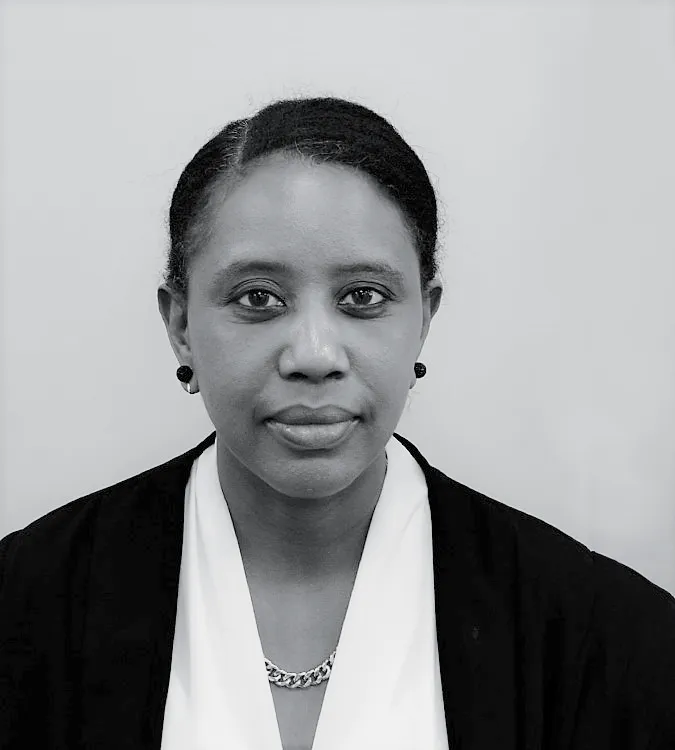

 Sign in with Google
Sign in with Google 


